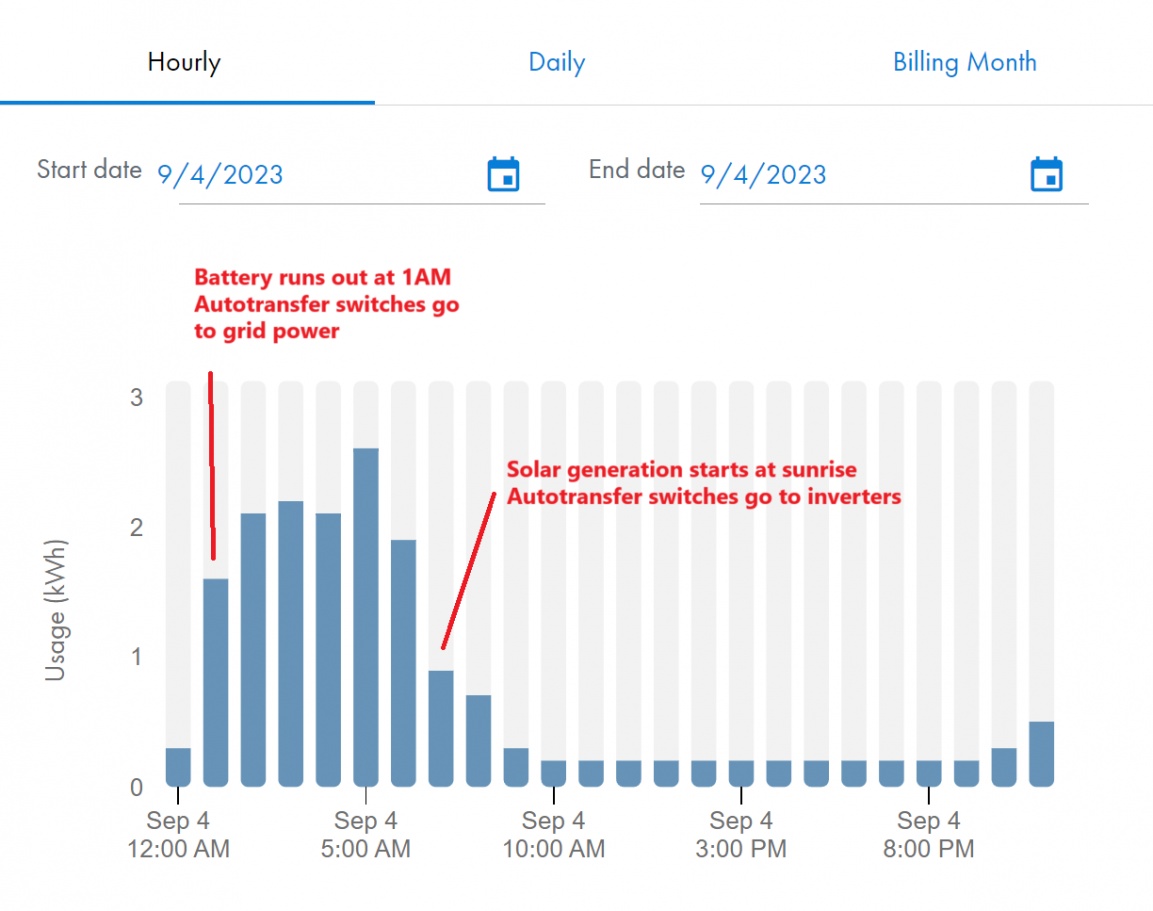1)in regards to the OP's original question, yes, I do think lawsuits will have an impact going forward on both the cost and an increase in intentional shut downs of the system during high winds (in certain areas only, I believe)
2)Atlas snowstorm, South Dakota, October 2013. I was at work up in Alaska but my husband was at home with our three young kids. No power for 7 days. Many large (and I do mean large) downed trees blocking in and out access to our neighborhood. So, packing up the car and getting to a hotel wasn't an option! And with so many neighborhoods in the state affected, help wasn't coming fast. Hubby used our gas powered generators to keep the fridge running etc, kept the house warm with the wood stove, and helped the elderly neighbors as well.
Lessons learned.
Fast forward to now, we moved to 40 acres ( roughly the same area) that would have cost us about 10-15K dollars to have electricity brought in. Instead, we have a 15KW lithium iron battery system, a 6 K inverter, and twenty five 250 watt solar panels (these were bought used) We have a separate smaller system powering the barn.
For us, it is both an enjoyable hobby and our lifeline rolled into one. Nothing gives me greater joy than on days when the batteries are full and we still have plenty of sun (we get a lot of sunshine in this state), running a load of laundry or cooking with he instant pot with "free" sunshine!
This life isn't for everyone (FYI, I love it!). But what it does do is give one a good sense of how to conserve electricity, how much individual appliances use (most people are pretty clueless), and a great appreciation for what many take for granted: electrical power to a home.
Having a back up system with a generator, no matter how small, is never a bad idea. You always have power, until you don't.
Lot's of ways to skin a cat. Not a big deal when you have a shop and open air patio ~50' from the house that's prewired with a couple of isolated underground 12ga Romex cables to the house and a couple of UPS's that will hold up all my important electronics inside for 30+ mins and (2) 10k btu 110v backup window AC's. If the power is out from more than 10mins, it's usually going to be out for hours, so I get off my butt and fire things up. Without going into the details, I've got it down to an art. ~10 mins and I'm back inside on my butt.
I am one who would be miserable without AC. We don't have outages often, but for people who do, how would you know how long the outage will last?
If you have a whole house generator with an auto transfer switch, it's no big deal. But if you need to drag out and set up a portable generator, what if you wait for an hour or so before you get off your butt to do it, then shortly after that the power comes back on?
A battery backup will work well for frequent outages. And if it looks like the power outage will last a while, you then set up the generator to feed the battery.
PS. A 14-kWh battery backup now costs $4K. Add a 6-kW inverter for $1K, and you can run the fridge and a couple of mini-splits ACs and lighting with ease. Most inverters have a built-in transfer switch, and can be wired permanently to your home the same way as you do a whole-house generator. To charge the battery in the case of long outages, a $500 portable generator will do.
In contrast with a whole-house generator that takes tens of seconds to come online, an inverter switches on instantly. The transfer takes place in milliseconds, just like the smaller UPS (Uninterruptible Power Supply) that is commonly used to keep PCs working.

